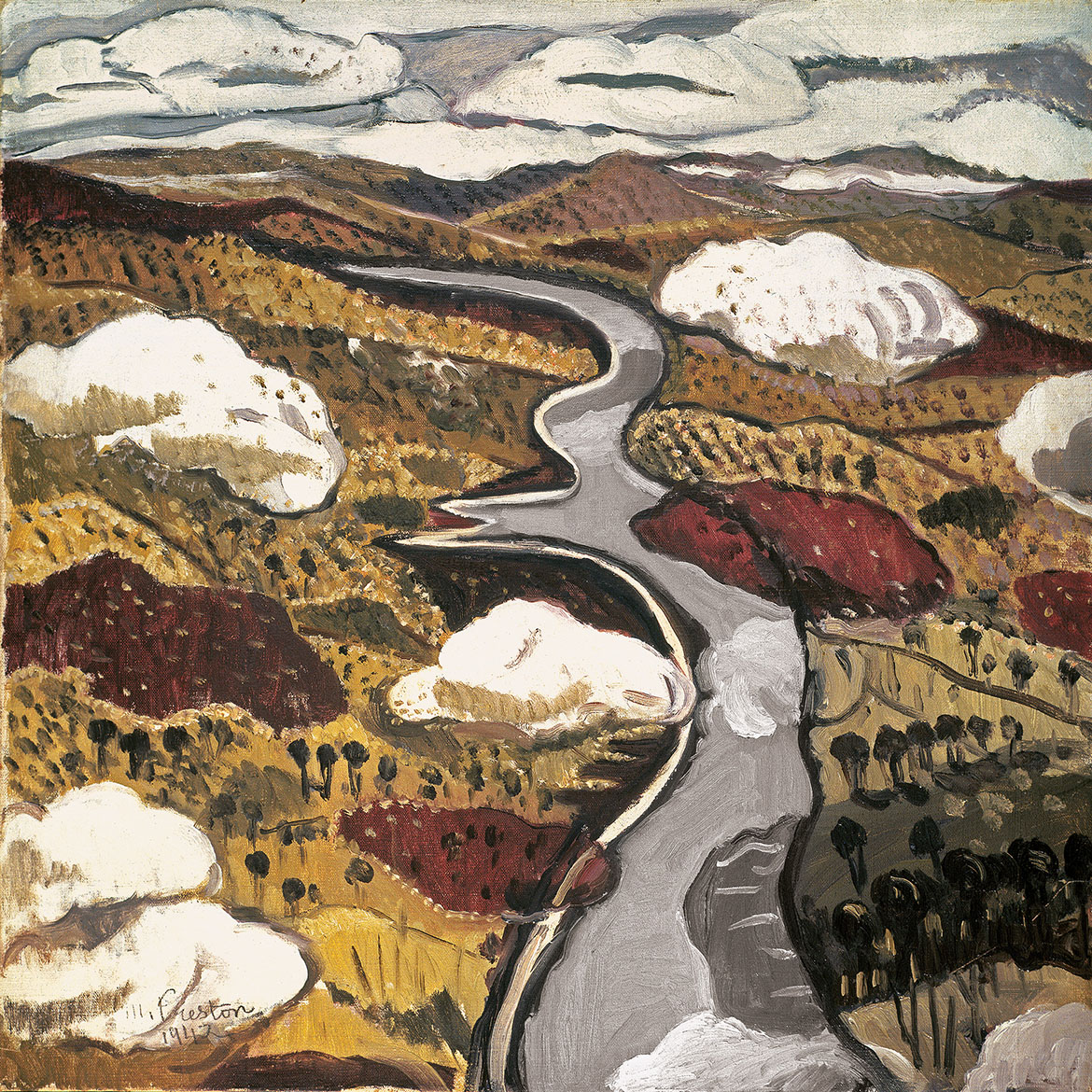
Vibrant and distinctive The art of Margaret Preston QAGOMA Blog
The National Gallery s 1987 publication The prints of Margaret Preston: a catalogue raisonné was a historic event, being the first monograph the Gallery published on an individual artist, and also the first catalogue raisonné it produced. Following its publication, many more Preston works were discovered, and this new expanded edition.

Margaret Preston (1875 1963). Mosman Bridge, c1927 Australian art, Margaret preston, Linocut art
The Prints of Margaret Preston: A Catalogue Raisonné, National Gallery of Australia, Canberra, 1987, p. 311 Margaret Preston Catalogue Raisonné of paintings, monotypes and ceramics, Art Gallery of New South Wales, Sydney, 2005, CD-ROM compiled by Mimmocchi, D., with Edwards, D., and Peel, R., cat. 1925.11 ESSAY Margaret Preston is without.
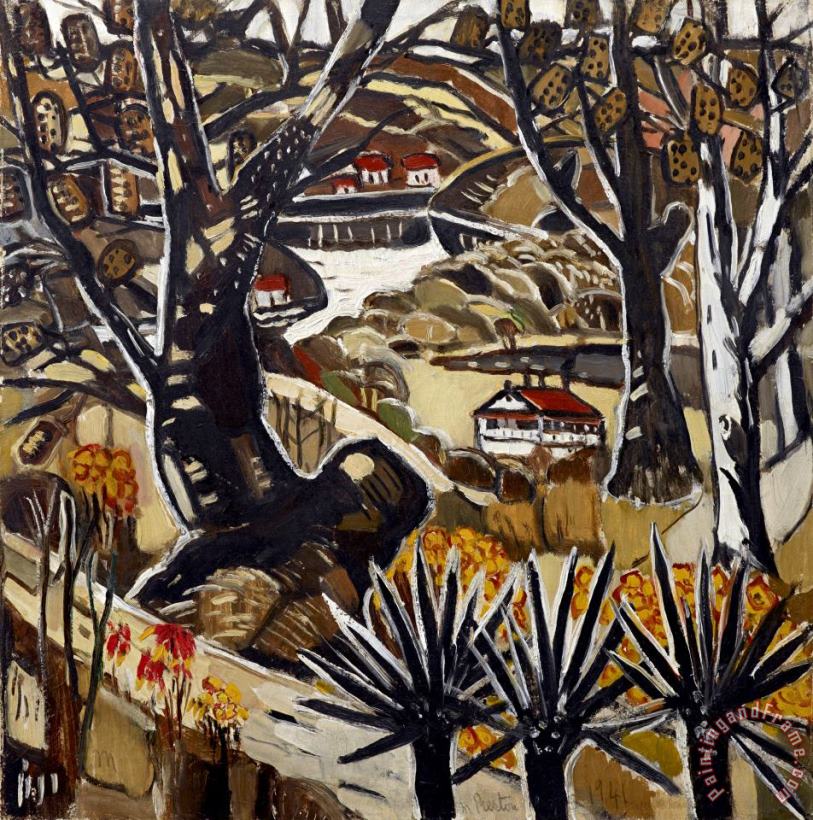
Margaret Preston I Lived at Berowra painting I Lived at Berowra print for sale
How the Prints are Made. Margaret experimented with various techniques and materials for her art making, this includes linocuts, wood engravings/etchings and gouache paint. However, when she was making her prints, Margaret usually focused on using wood engravings and linocuts to block print. Her technique then involved printing with a large.
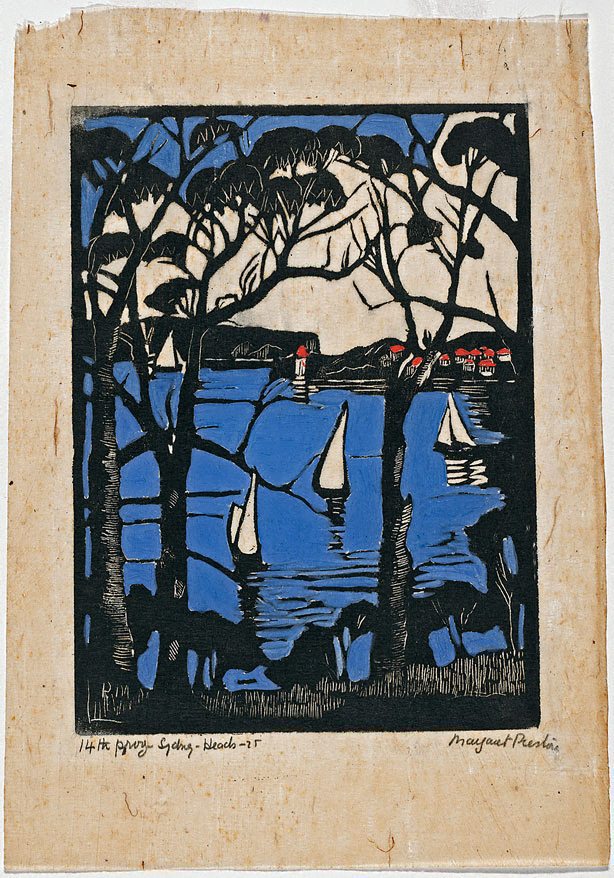
Sydney Heads (2), 1925 by Margaret Preston The Collection Art Gallery NSW
2. Preston's prints were included in publications such as Women's World, Wentworth Magazine, Manuscripts, and Sydney Ure Smith's The Home, Art in Australia, and Australia National Journal. 3. Margaret Preston quoted in Long, G., 'Some Recent Paintings by Margaret Preston', Art in Australia, Sydney, third series, no. 59. Sydney, May.

Circular Quay, 1925 by Margaret Preston Art Gallery of NSW
The prints of Margaret Preston: A catalogue raisonne. Canberra: National Gallery of Australia, 2006. 384 pages, 414 colour illustrations, 30x25cm. Bibliography, Index. ISBN -19-554865-5. Margaret Preston is one of Australia's most popular artists. She excelled as painter, potter, basket weaver, rug maker, printmaker and protagonist.

Art Quill Studio Margaret Preston[1]FineArt PrintsMarieTherese Wisniowski
Share your knowledge - add or amend information. Search our free online databases for Australian printmakers and other creators, prints (26,000 images), print exhibitions, bibliographies, biographies and news.
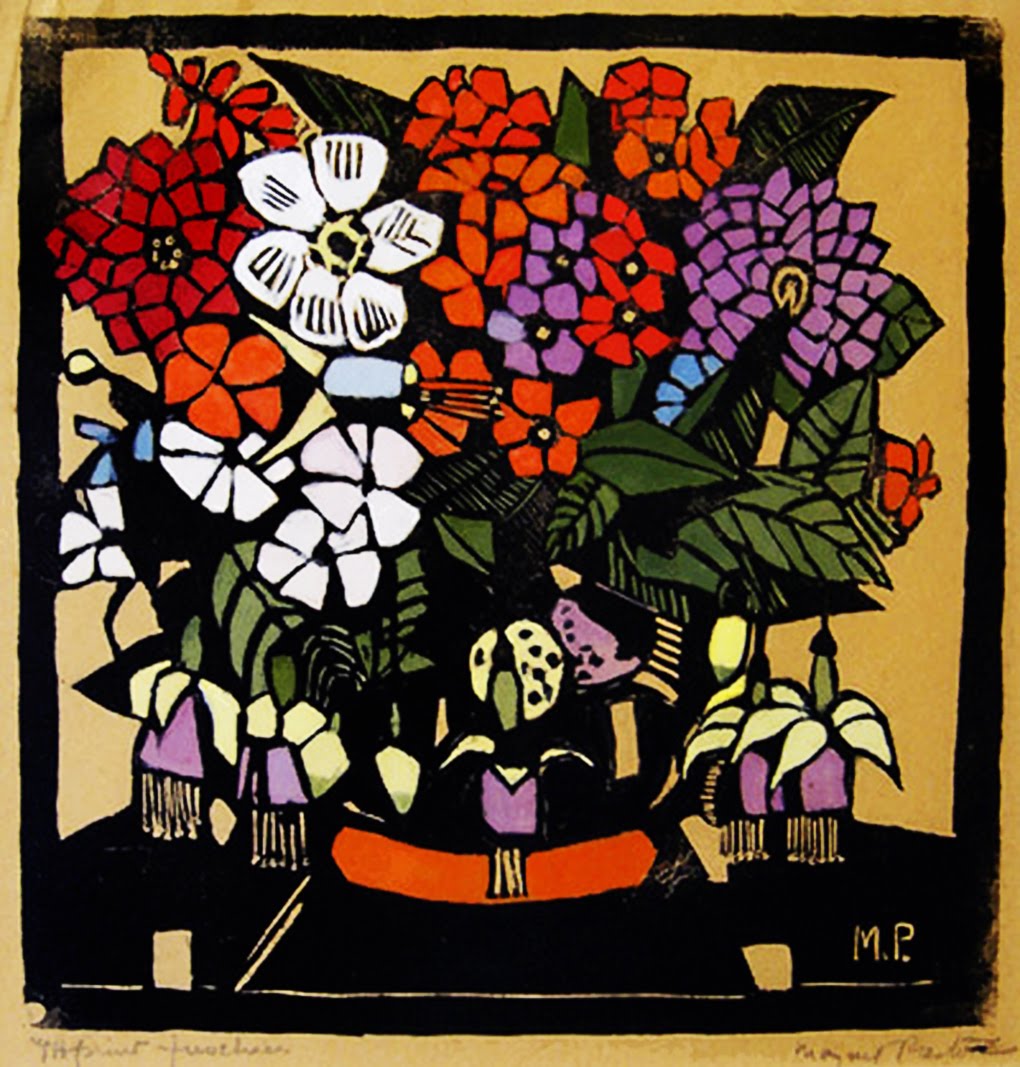
Intelliblog ART SUNDAY MARGARET PRESTON
Margaret Preston (1875-1963), Australia's most celebrated early modernist, created innovative woodblock prints from the 1920s which remain amongst the most popular of all Australian artists' work. She was the first serious artist advocate of Aboriginal art, yet her appropriation of Aboriginal imagery to the cause of modernism contributed.

Christmas bells (1925) by Margaret Preston (18751963) · Australian Prints + Printmaking
Born Margaret Rose Macpherson, Margaret Preston was an Australian painter and printmaker. She is recognized as being one of Australia's most influential artists of the twentieth century,. "We were looking specifically for Wayne Thiebaud prints and your site had (by far) the best selection. We are very thrilled with the quality and your.
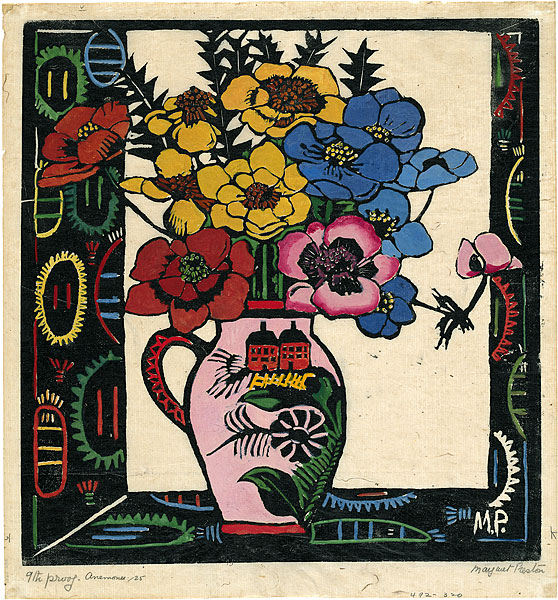
Pink jug (1925) by Margaret Preston (18751963) · Australian Prints + Printmaking
Born Margaret Rose Macpherson in Adelaide, Preston studied with landscape painter W Lister Lister in Sydney from 1888, at the National Gallery of Victoria schools in Melbourne in 1893-94 and 1896-97, and at the Adelaide School of Design in 1898, focusing on still life rather than figure studies. She travelled to Europe in 1904, studying for.

Art Quill Studio Margaret Preston[1]FineArt PrintsMarieTherese Wisniowski
Margaret Preston (1875 - 1963) was one of the most significant exponents of Modernism in 20th century Australian painting and printmaking. Preston's emergence as an influential figure in the 1920s is inextricably linked to her extensive travels and studies in Europe between 1904 and 1907. These experiences and resulting artistic revelations.

Design is fine. — Margaret Preston, Bird of Paradise, 1925....
Creating distinctive cosmopolitan still life prints, the art of Margaret Preston serves to symbolise one of Australia's most aesthetically original historical periods. Born in Port Adelaide in 1875 Margaret Rose Macpherson, as she was known until 1920, showed an avid interest in the arts from an early age.

Art Quill Studio Margaret Preston[1]FineArt PrintsMarieTherese Wisniowski
It was printed in black ink but was coloured by hand. The print depicts an old banksia tree after flowering and was based off an actual tree in Preston's home in Berowa. While being an Australian artwork, this piece supposedly has some Japanese influence from between the 1890s and 1950s. At the bottom of her artwork, she signed her name and the.
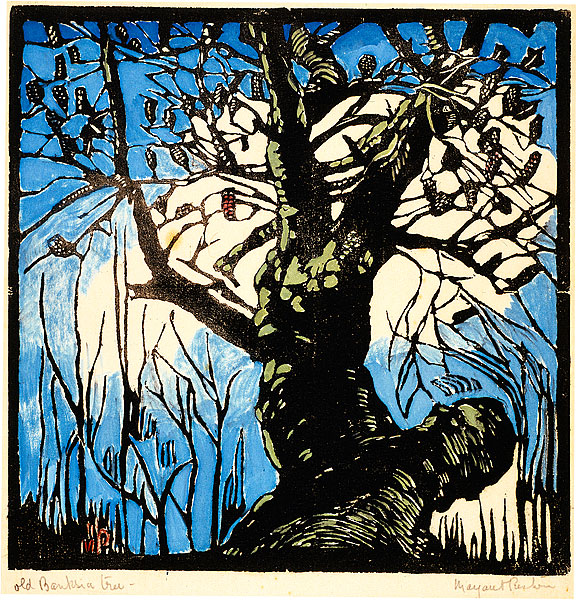
The Banksia tree. (1939) by Margaret Preston (18751963) · Australian Prints + Printmaking
Margaret Preston, an acclaimed Australian artist and printmaker, left an indelible mark on the art world. Her unique prints became a focal point for the Australian National Gallery in the early 1970s, as they sought to build a comprehensive collection of prints by renowned Australian artists.
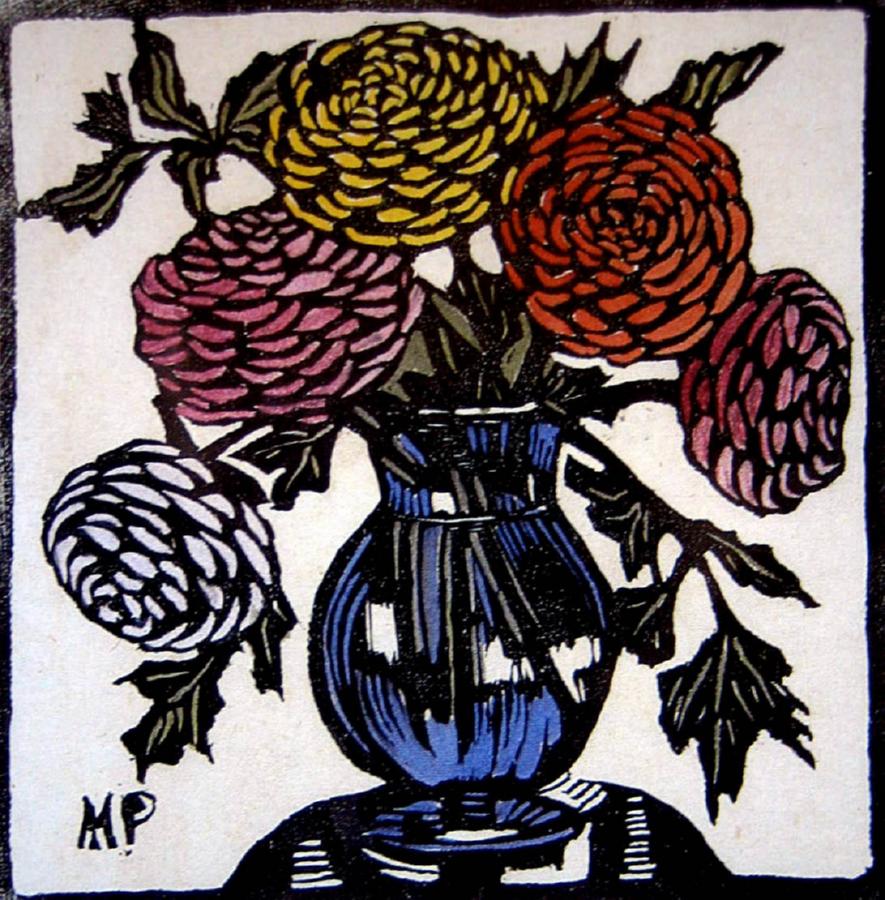
Margaret Preston List All Works
Margaret Preston (1875-1963) is one of Australia's most innovative early modernists and one of our most celebrated artists. In the first major retrospective of Margaret Preston's work, more than 100 of her commanding compositions have been brought together with her prints, pottery, textiles, photographs and documents.
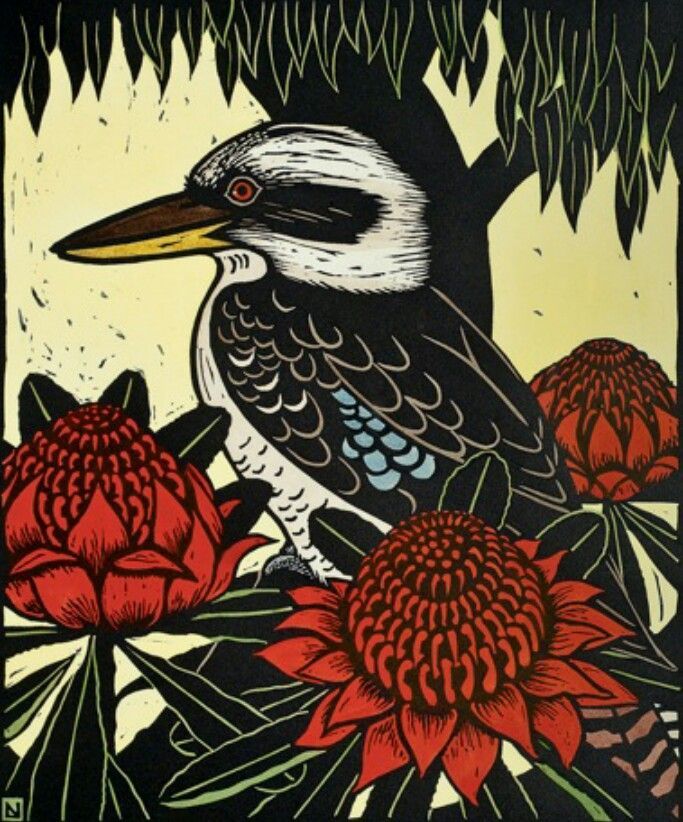
margaret preston birds Google Search Lino art, Bird prints, Art prints
The acquisition of prints by Margaret Preston (1875-1963) became a priority for the Australian National Gallery in the early 1970s, when the Gallery first began to assemble a comprehensive collection of prints by significant Australian artists. It was natural that Preston's work should be considered essential to the new collection.
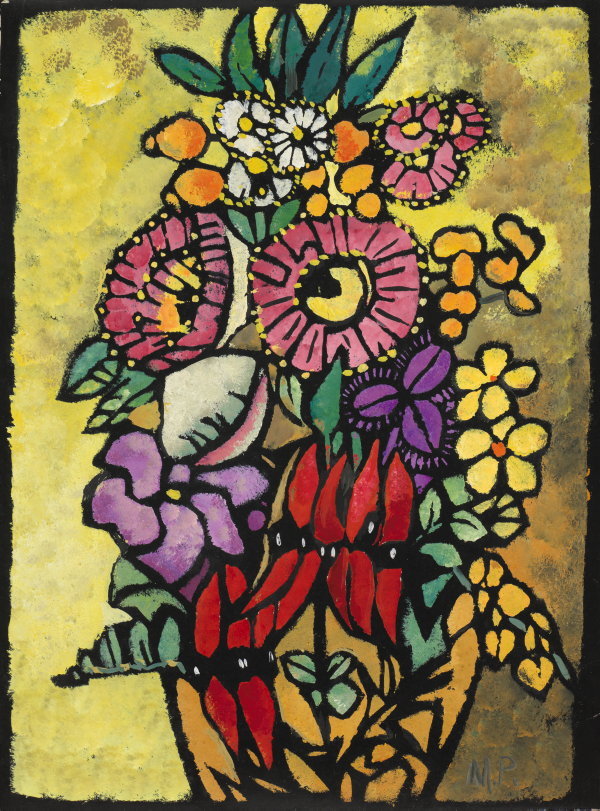
Native flowers, 1949 by Margaret Preston The Collection Art Gallery NSW
Margaret Preston's prints produced between 1916 and 1956 show an artist moving away from European traditions to a unique art based on the land and experience of the Asia-Pacific region. Her work of the 1920s is energetically decorative and popular; that produced in the 1950s - when she was in her late 70s - is profound.